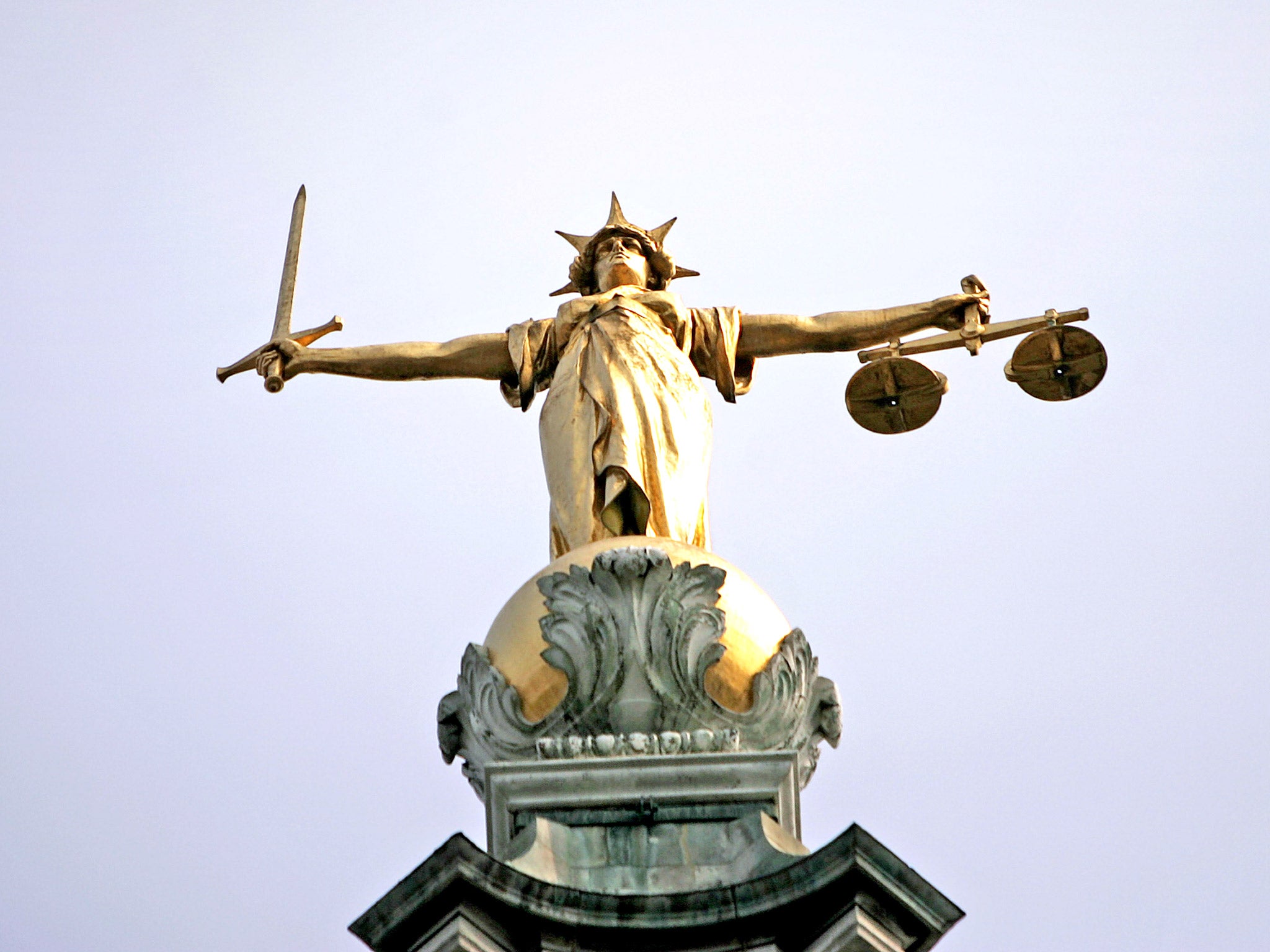Terror suspect removed from court after shouting at prosecutor and calling him a ‘p***k’
Thirty-two-year-old stood up in the dock and launched tirade during barrister’s closing speech

A terror suspect has been removed from an Old Bailey courtroom by security after shouting at a prosecutor and calling him a “p***k”.
Muhamed Abu, 32, is on trial for allegedly failing to tell authorities that his brother Sahayb was planning a terror attack.
The disturbance started as prosecutor John McGuinness QC was making his closing speech to the jury on Thursday.
He told jurors that Muhamed’s online activity showed that he had been told of Sahayb’s alleged plans, and showed evidence of his own extremist mindset.
Mr McGuinness said Muhamed’s claims to police that he was not an extremist and had no animosity towards the UK were contradicted by an incident in 2017.
Muhamed, Sahayb and one of their brothers were caught by police putting up posters in Ilford, east London, showing images of poppies and skulls alongside the slogan: “Britain uses your tax money to kill Muslims in Muslim lands.”
The posters included a citation from the Quran telling Muslims not to “take the Jews and the Christians as allies”.
As Mr McGuinness asked how Muhamed’s claims in his police interviews sat with the poster incident, the defendant stood up in the dock and started shouting: “That was against the government, the government changed, that was against the government you p***k … I’ve got nothing against Britannia.”
His brother, Sahayb, repeatedly told him: “Relax, man, Muhamed relax.”
As the defendant continued shouting, Sahayb told the judge “he’s got autism”.
Judge Mark Dennis QC adjourned the hearing as security staff removed Muhamed from the dock and took him down to the cells.
He denies failing to disclose information about acts of terrorism but did not give evidence in his defence.

His brother, Sahayb, denies preparing an act of terrorism and previously told the court that he did not buy a sword, knife, combat vest and balaclava to commit an attack.
The jury heard Sahayb had made more than 100 online searches for Isis, viewed the group’s propaganda videos and material by extremist preachers, and joined an Isis-supporting online chat group.
Jurors were played violent raps, including one where Sahayb called himself a “straight Isis supporter” and said he was “trying to see many Lee Rigby’s heads rolling on the ground”.
Giving evidence at the trial, Sahayb said the videos were parodies of drill rappers and not serious, and that the combat vest, balaclava and gloves were props.
He said he bought the sword because it “looked cool”, and the knife for household talks.
“The prosecution say he intended to use the Qama knife [sword], the combat vest and balacalva et cetera to commit an act or acts of terrorism,” Mr McGuinness said.
“The prosecution case is that Sahayb Abu lied to you [the jury] over and over again during the course of his evidence.”
Mr McGuinness asked the jury to question why Abu asked for the sword to be sharpened before delivery if it was a prop, and why he asked whether the combat vest could “stop a bullet”.

“That’s a pretty odd question if all you want to do is wear it in a video,” he added, calling the reasons Sahayb gave for his purchases “nonsense”.
Sahayb said he joined the Isis-supporting chat group to meet women, and that his pro-Isis comments on YouTube and other online platforms were “trolling” or “bravado” that he did not mean.
He denied supporting Isis and claimed to hate the group, because he held it responsible for the deaths of two of his brothers after they joined its “caliphate” in Syria in 2015.
Mr McGuinness told the jury that if Sahayb hated Isis, he would not have joined a chat group of supporters and that the posts he wrote online would have “choked” him.
“This isn’t just trolling and being abusive, this is extremist ideology, this is Isis-speak,” he said.
“The truth is that he was a supporter of the Islamic State creed. That was true in 2020 and if you go back to October 2017, the poster incident where he was involved with Ahmed and Muhamed suggests the same.”
The trial continues.



Bookmark popover
Removed from bookmarks